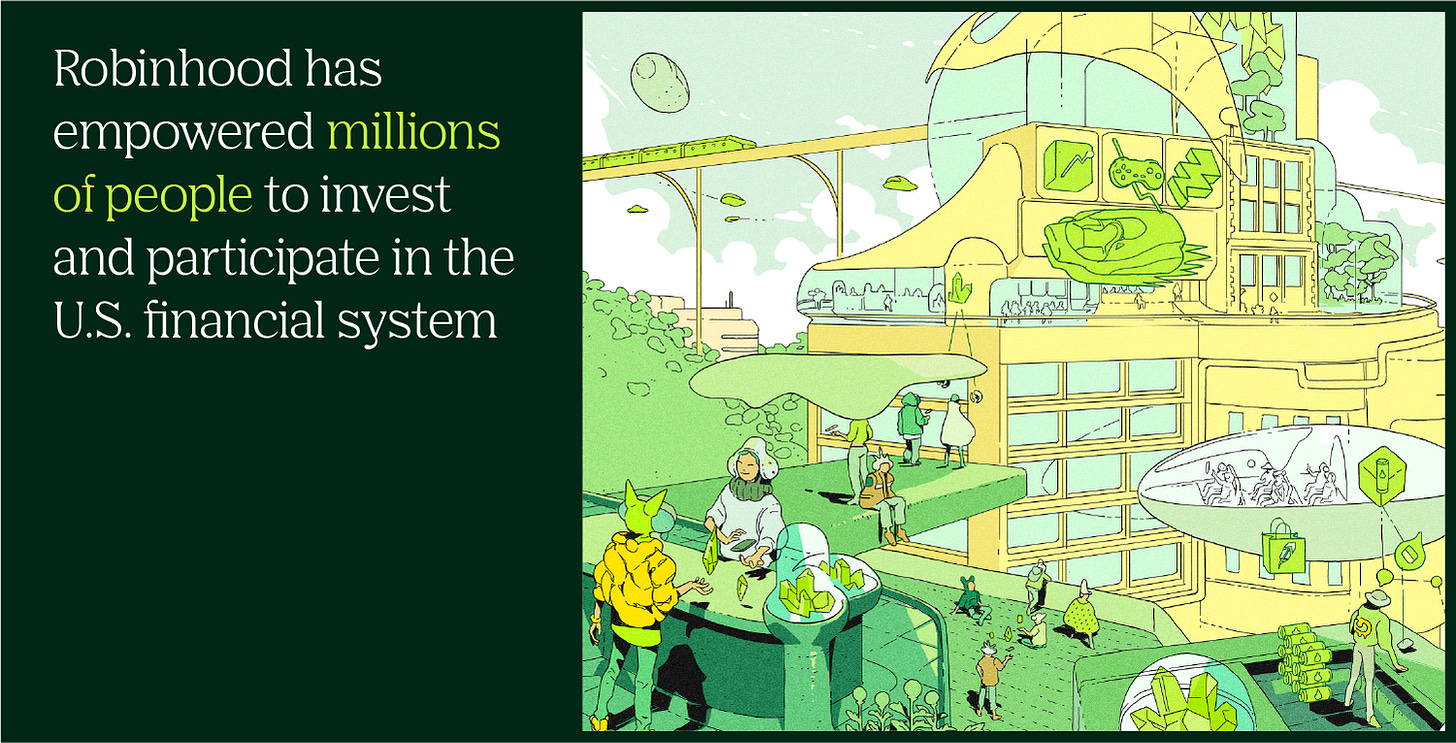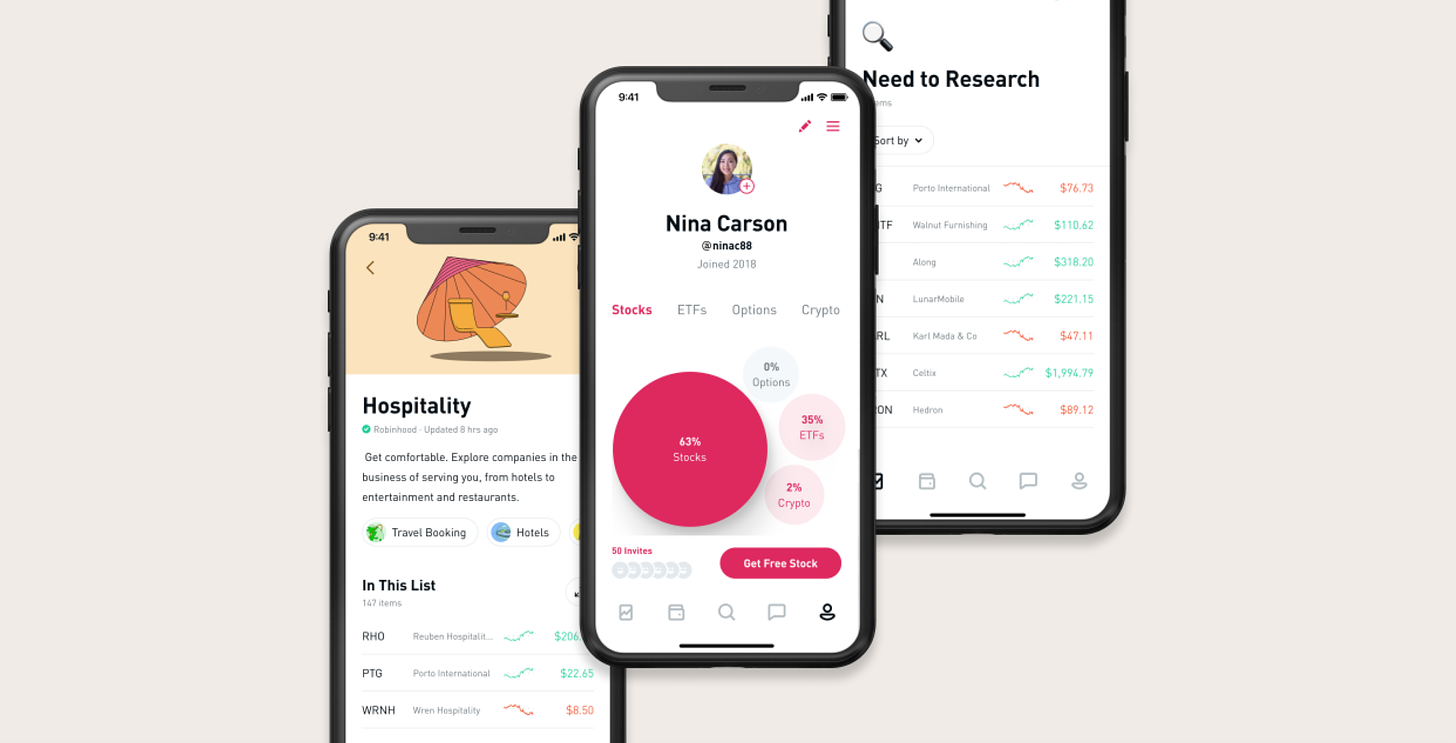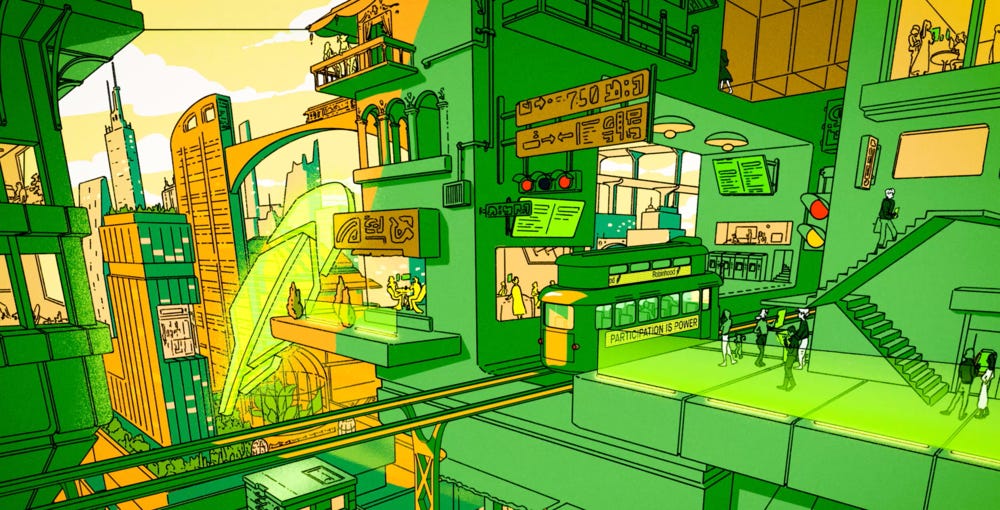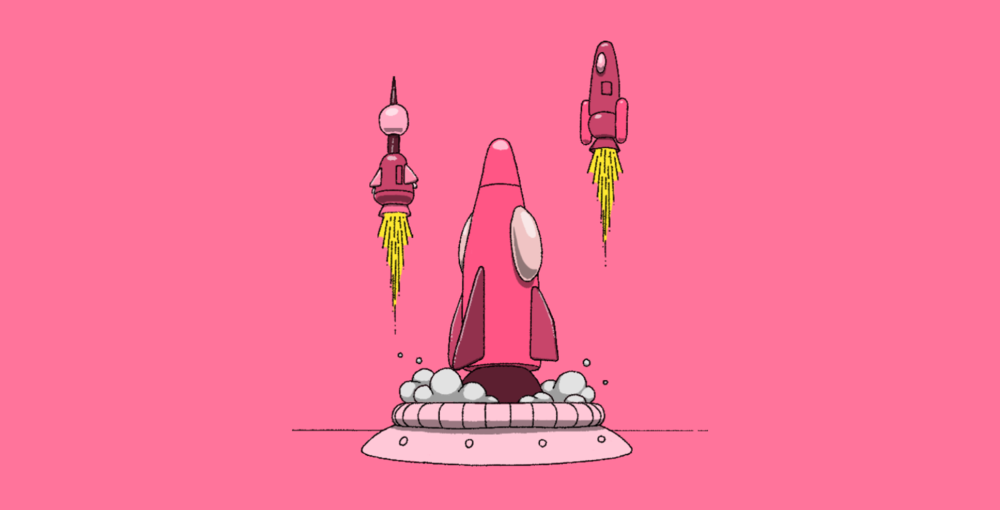Robinhood truly changed finance in the US, and it comes with a fair share of publicity and scrutiny.
Robinhood Markets Inc. with subsidiaries Robinhood Financial LLC, Robinhood Crypto LLC, and Robinhood Securities LLC is known to most of us as Robinhood1, a household name with tens of millions of users and a newly minted 20 billion dollar valuation.
They were the ones who made zero commission trading an industry standard and who normalized mobile investing. Ironically, these same features have been the most viral and have also caused the most scrutiny. Packy McCormick does a good job laying out the challenges brokers like Robinhood face in high-frequency and scrutinized trading products here.
Many have done analysis on the good, the bad, and the ugly2 and it is now well documented that they’ve made some big mistakes. Robinhood has also done a lot of good and in the face of all recent publicity, their greatness has been less commonly documented.
Regardless, millions continue to flock to Robinhood over other brokers and they remain atop of the finance category in the iOS store. Why?
Rather than analyzing Robinhood in the binary of naughty or nice, we can learn from looking at the Robinhood story from their perspective to see solutions and improvements to commonly addressed issues. New strategies are arriving for zero commission brokers to align their incentives with customers and industry leaders like Robinhood can do a lot of good.
History
The technical beginning of Robinhood’s journey began in 2013 when Vlad Tenev and Baiju Bhatt Co-Founded the company and launched their first version of the mobile app.
Vlad, who is Co-CEO alongside Baiju, has recently been the one publicly rallying to share more about Robinhood’s story, intentions, and vision.
His story about what has guided him to work in finance3 is inspiring.
Vlad moved to America from Bulgaria in the early 90s when his father got an opportunity to study in the US and his grandfather insisted he take the opportunity. In that short window leaving Bulgaria and moving to America, his appreciation for democracy and capitalism was developed. The Berlin Wall fell, Bulgaria's economy collapsed along with hyperinflation, currency devaluation, pensions evaporating into thin air; all in a few years.
It took a couple more decades until Robinhood was in the works.
He stopped at Stanford and studied mathematics. Then after 5 years of grad school and with plans to be a math professor after grad school, low pay and grueling times sent him looking for something different.
Through the financial crisis in 2008, he moved to New York and began starting businesses with his buddy Baiju.
Among other reasons, they moved back to California to chase more software engineers and they officially launched Robinhood in 2013.
When they began, the platform was much different than it is today. In 2013 they were working on a mobile app that didn’t actually allow any trade execution. See the video demo from Stanford in the middle of the night above. I love to find these things stuffed in the attic, it’s so cool to look back at how business really looks, especially at the beginning of any project. In 2015 they officially launched live trading.
Initially, they were mobile-first and mobile-only, with web added later on. In the early 2010s, mobile was less relevant than it is today. Just like every truly transformative technology, in adoption, there was a big-time resistance about moving things to the phone. Now CEOs like Jack Dorsey run their entire companies on their mobile phones.
Investing and trading were no different. There was a lot of scrutiny and still is, that lower quality trading takes place in a mobile environment. However Robinhood, like Square and Cash App, have bet on mobile-first from the beginning, and it has paid off.
In the earliest days, Robinhood had no traction, no business, no experience making consumer products4. Vlad would write code, Beju did UI, and as former Mathmatitions, they weren’t great, but he says they just learned iOS development from first principles and did everything themselves.
Vlad watching Paul Haggarty's iOS development lectures through Stanford which were free and Beju would watch movies about Helvetica in his spare time.
As they added users and made some progress they were able to slowly add components like Zane B. an early designer (we’ll come back to him) and Scott who was the first Chief of Finance. Especially in this category, good talent is both important and hard to earn. Getting the best employees is the name of the game for any start-up, and it is/was especially true for Robinhood. Building a true technology-first platform to participate in the financial system is both an advantage, and no small feat.
Products
Robinhood’s first real product was letting users trade stocks and exchange-traded funds (ETFs). Typically brokers offered 5-10$ fees on each trade and required account minimums typically in the range of $500-5000. Zero commission trades and no account minimums are now an industry standard for public market brokers.
This remains true in their crypto product, zero commissions, which is different from the approach of others in the category of crypto exchanges like Coinbase. Coinbase actually makes a substantial portion of its revenue from exchange fees5, high 90%s. Coinbase has gotten criticism for the lack of other revenue streams and the vulnerability of someone coming in and offering a 0% exchange fee product to disrupt their core revenue stream.
Companies have to make money somewhere, and this leaves Coinbase and Robinhood in a very similar situation. Where do we make money that aligns ourselves with customers? Robinhood charges no exchange fee, Coinbase does, and both faced scrutiny for doing so (haha!).
In 2019 Robinhood, like Cash App, launched banking features with routing and account numbers for online checking and savings accounts. With Sutton Bank in Ohio, Robinhood customers now have access to online banking in their brokerage accounts where Robinhood is able to make interest on unused cash. While not a huge revenue stream, this feature and the things attached to cash management dramatically increase the versatility of accounts and give customers a reason to hold more of their assets in their Robinhood accounts. The more value held on the platform, the more valuable Robinhood becomes.
The revenue line that I think is most sustainable is their Robinhood Gold subscription. Upgrading to Gold costs $5 dollars a month in exchange for access to margin, bigger instant deposits, professional research, and level 2 market data6. One big benefit of the Gold model is a barrier to entry for tools like margin that have been scrutinized for being too easy to access. It’s also a good way to offer a platform that users can grow with and align themselves with customers.
As users become increasingly aware of the tradeoffs to free business (i.e. if you’re not paying for the product, you are the product), more people are willing to pay upfront for aligned incentives. This is one reason Coinbase has continued its success even in an environment where other exchanges have no exchange fee.
Coinbase has been combed through by regulators as it hit the public markets earlier this month7, so just recently they have had to address concerns about other revenue lines outside of exchange fees. Brian Armstrong, the CEO of Coinbase says credit cards are a product they can launch that aligns with customers8, and I expect Robinhood to eventually do the same.
Design as a moat
Product differentiation only goes so far. As the financial technology space has continued to evolve, many companies are starting to offer the same tools, services, and products.
Zane B. their founding designer has created a design system that has raised the bar for other tech companies. In a world of design consolidation, especially in the mobile software industry, it isn’t easy for businesses to have product design that sticks out amongst others.
At Robinhood, they don’t just have good design, I think it is one of the core product moats that they possess. Watching social media during a major platform outage or a new controversy leaves many hysterically claiming they’re jumping from the Robinhood ship, but do they really?
Other brokers face many of the same challenges Robinhood does. I’ve heard story after story about people looking to open accounts at Public, WeBull, Fieldeity, etc. and people consistently mention the significant drop-off in the platform feel and design.
Their mobile and web applications are continuing to raise the bar on what great apps look like, but they do a great job in every design medium. They communicate with amazing illustrations and have created an entire design system9 that makes their platform feel unmatched. These graphics make it easier to launch new features and products while communicating in an engaging way. I love the Robinhood Design System, and I’m betting those of you reading who use Robinhood in some capacity, love Robinhood’s design too🤌
Equal access to information
One of the biggest trends in finance that came with the internet is equal access to information. Not only do the more informed investors now share their knowledge publicly, but individuals are able to curate the most important financial news and analysis no matter how experienced an investor you are. You no longer have to work at a bank to hear what’s actually happening in the finance world.
Withholding information is a main feature of inequality, and historically financial institutions have shielded everyday people from the most relevant information creating another big disadvantage for the individual. In many ways, no longer.
Robinhood has gotten publicity for offering participatory tools to individuals like buying and selling stocks but I think one of the more underrated things built into their business is A) teaching and B) curation of the most relevant information.
At learn.robinhood.com they are building out their version of Investopedia. Unlike a traditional forum, they have millions of hungry users that have a reason to learn more about financial literacy and how to better take control of their financial lives. For many of us, we need a reason to learn, and Robinhood is uniquely positioned to effectively teach finance to people who are engaged because of them. I would be willing to bet for the majority of kids moving through grade school today, many will learn why finance is important to them outside of the classroom.
Good regulation
In the age of decentralized finance, what is the role of Robinhood in the future financial technology economy? Many of the controversies Robinhood and others in the category face can be relived with digital wallets and decentralized exchanges. Many are losing trust with institutions as a whole.
Blockchain and the Crypto industry are taking the world by storm, but centralized platforms like Robinhood, Coinbase, and Square all have a key role to play. New debates are taking the center stage about the sustainability of mining, the efficacy of certain securities over others, among other issues.
These companies are now tasked with working with regulators to pave the path for crypto in the US, and globally. Addressing concerns, launching initiatives to transition mining to sustainable energy sources, informing the public in times of uncertainty, are all examples of ways they are fostering adoption in a regulated environment.
While Robinhood doesn’t offer a decentralized wallet, keys, or the ability to transfer off-the platform, they have publicly talked about this being in the works10. When this comes true, they’ll look more like Coinbase than ever before. Both companies will serve as an example of what it looks like to be a centralized company that gives individuals the tools to participate in this new arena.
Their role of working with regulators, initiating solutions to concerns such as sustainability of the industry, and building public trust in a new arena means their work is only beginning. Robinhood has an important job to do.
What’s next
As they deal with a consistent flow of legal battles11, Robinhood is going to continue to get scrutiny. By increasing transparency of their business, which will be accelerated as they go public12, we’ll benefit. By launching products and services that allow them to make money while being aligned with users, we’ll benefit. By continuing to merge with decentralized systems, we’ll benefit.
Most important to their long-term success though will be their ability to onboard individuals to have access to the US financial system, especially those who wouldn’t have had access. By offering the tools, more investors will have a reason to learn why participation is important to them.
For individuals who are young and being introduced to the world of finance in the classroom, they’ll need a reason to be engaged. Having ownership of businesses and access to tools gives them a reason to get educated and engaged. The better they can educate these users the higher the floor on financial literacy in the country.
While there are certainly challenges to opening access to younger and less informed investors, limiting access is not the answer. The top 1%, the largest piles of wealth, the most financially free, all did so with ownership. I’d be willing to bet they weren’t born with the knowledge of stonks but developed an understanding from participation.
Vlad talks about the benefits of having close to 100% of households in the US invested13, including an increased sense of nationalism and a prospering economy where the pie actually gets bigger. Robinhood can do a lot of good, and while they’ve made mistakes, they are going to play an important role in democratizing finance for all.
-LUCAS
Some planned topics for 2021
2021 technology products of the year
Line Mogul
Let me know if you are interested in adding something to the list.
https://en.wikipedia.org/wiki/Robinhood
https://tanay.substack.com/p/robinhood-the-good-the-bad-and-the
https://www.thetwentyminutevc.com/vladtenev/
https://www.thetwentyminutevc.com/vladtenev/
https://markets.businessinsider.com/currencies/news/coinbase-ipo-interview-ceo-wants-diversify-revenue-not-just-fees-2021-4-1030304814
https://robinhood.com/us/en/about/gold/
https://ipowatch.substack.com/p/coinbase-ipo-deep-dive-the-journey
https://markets.businessinsider.com/currencies/news/coinbase-ipo-interview-ceo-wants-diversify-revenue-not-just-fees-2021-4-1030304814
https://unblockers.substack.com/p/ed-024-design-systems-make-future
https://decrypt.co/62021/robinhood-ceo-well-offer-a-crypto-wallet-as-fast-as-possible
https://www.sec.gov/litigation/admin/2020/33-10906.pdf
https://www.cnbc.com/2020/12/09/trading-app-robinhood-hires-goldman-sachs-to-lead-its-ipo-sources-say-.html






